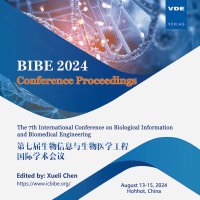Low-Rank Constrained Magnetic Resonance Compressed Sensing Reconstruction Method
Konferenz: BIBE 2024 - The 7th International Conference on Biological Information and Biomedical Engineering
13.08.2024-15.08.2024 in Hohhot, China
Tagungsband: BIBE 2024
Seiten: 6Sprache: EnglischTyp: PDF
Autoren:
Guo, Hongyu; Jing, Yan; Zhang, Zheng; Chen, Hong
Inhalt:
Combining parallel imaging with compressed sensing is a widely adopted strategy in magnetic resonance imaging (MRI) data acquisition. This approach enables the utilization of more adaptable sampling patterns and leads to improved image reconstruction. However, reconstructing images from a restricted number of sampling points is a great challenge. Recent structured low-rank techniques have shown good performance in terms of robustness and reconstruction errors, yet they have not been combined with calibration data to enhance reconstruction performance. This paper proposes a low-rank constraint compressed sensing reconstruction method called LS_SPIRiT, which combines parallel imaging with a fast reconstruction strategy for reconstructing under-sampled MRI data. A low-rank matrix based on the local K-space neighborhood is constructed by fully exploiting the correlation among data from various receive coils. Then, the matrix is incorporated into the TV-RSPIRiT optimal model as a new constraint term. Finally, the optimization problem is solved to obtain the optimal solution using the primal-dual algorithm. The experimental results demonstrate that the proposed LS_SPIRiT reconstruction method achieves higher PSNR and SSIM and lower RLNE than the traditional SPIRiT and TV-RSPIRiT methods. Through a quantitative comparison of PSNR, SSIM, and RLNE across various datasets, the proposed reconstruction method demonstrates the capability to achieve superior image quality.


